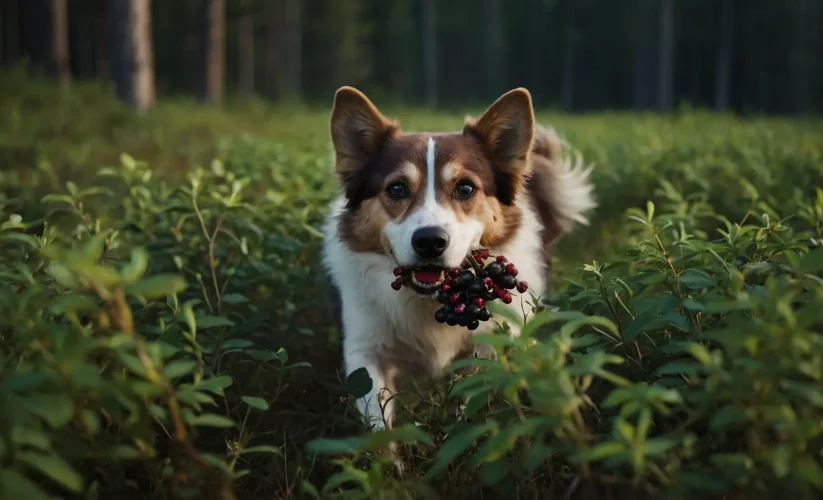Can Dogs Eat Deviled Eggs?

Are you wondering if your furry friend can indulge in a bite of your delicious deviled eggs? As a dog owner, it’s essential to be cautious about what you feed your pet. In this article, we will explore the question, “Can dogs eat deviled eggs?”
Potential Risks and Dangers of Feeding Deviled Eggs to Dogs
Eggs are a fantastic source of protein and essential nutrients for humans, but is it the same for dogs? While eggs can be a healthy addition to a dog’s diet, deviled eggs may not be the best choice. Deviled eggs are typically made with ingredients like mayonnaise, spices, and sometimes even onions or garlic, which can be harmful to dogs.
Both onions and garlic contain thiosulphate, a toxic compound that can cause anemia in dogs. Additionally, the spices and excessive salt in deviled eggs can upset your dog’s stomach and lead to digestive issues.
It’s important to note that dogs have different dietary needs than humans. While we may enjoy a variety of flavors and spices, it’s best to keep our furry friends’ diets simple and free from potentially harmful ingredients. Feeding deviled eggs to your dog can pose unnecessary risks to their health.
Safe Alternatives for Dogs to Enjoy
While deviled eggs may not be suitable for your dog, there are plenty of safe alternatives that your furry friend can enjoy guilt-free. Plain hard-boiled eggs, without any added ingredients or seasonings, can be a healthy treat for dogs. Eggs are an excellent source of protein, and many dogs love the taste.
Another option is to prepare scrambled eggs for your dog. Simply cook the eggs without adding any butter, oil, or seasoning. Scrambled eggs can be a nutritious and tasty addition to your dog’s regular diet.
If you’re looking for a more creative way to incorporate eggs into your dog’s meals, you can try making an egg-based dog-friendly omelet. Combine eggs with dog-friendly ingredients like cooked vegetables or lean meats to create a nutritious and satisfying meal.
Remember, moderation is key when it comes to feeding eggs to your dog. While eggs are a healthy food choice, they should be given as a treat or added to your dog’s regular meals in moderation.
Signs of Food Allergies or Intolerance in Dogs
When introducing any new food into your dog’s diet, it’s important to monitor for signs of food allergies or intolerance. Dogs, just like humans, can have sensitivities to certain foods.
Some common signs of food allergies or intolerance in dogs include gastrointestinal issues like vomiting, diarrhea, or gas. Additionally, you may notice skin issues like itching, redness, or swelling. If you observe any of these symptoms after feeding your dog eggs or any other new food, it’s crucial to consult with your veterinarian.

Every dog is unique, and their dietary needs may vary. It’s essential to pay attention to your dog’s individual tolerance and adjust their diet accordingly.
Tips for Introducing New Foods to Your Dog’s Diet
When introducing new foods to your dog’s diet, it’s best to do so gradually. Sudden changes in diet can cause digestive upset and discomfort for your furry friend.
Start by incorporating small amounts of the new food into your dog’s regular meals. Monitor their reaction and gradually increase the portion size over time. This gradual approach allows your dog’s digestive system to adjust to the new food and prevents any sudden adverse reactions.
It’s also important to keep track of any changes in your dog’s overall health and well-being. If you notice any negative changes, it’s best to discontinue the new food and consult with your veterinarian.
Healthy Snacks and Treats for Dogs
In addition to eggs, there are many other healthy snacks and treats that you can offer your dog. Fruits like apples, bananas, and blueberries can be a delicious and nutritious treat. Just be sure to remove any seeds or pits that may be harmful to your dog.
Vegetables like carrots, green beans, and sweet potatoes are also excellent options for dog-friendly snacks. These vegetables provide essential vitamins and minerals while offering a satisfying crunch.
If you prefer to give your dog store-bought treats, make sure to choose ones that are specifically made for dogs and are free from harmful ingredients. Always check the label and avoid treats that contain artificial additives, preservatives, or excessive amounts of salt or sugar.
Homemade Dog-Friendly Recipes
If you enjoy cooking, you can also prepare homemade dog-friendly recipes to ensure that your furry friend gets the best quality ingredients. There are countless recipes available online that cater to dogs’ dietary needs and preferences.
When preparing homemade meals for your dog, it’s important to follow recipes that are specifically designed for dogs. Dogs have different nutritional requirements than humans, and certain ingredients that are safe for us may be harmful to them.
Consulting with a veterinarian or a veterinary nutritionist can be helpful when deciding to incorporate homemade meals into your dog’s diet. They can provide guidance and ensure that the meals you prepare meet your dog’s nutritional needs.
Consulting with a Veterinarian
While this article provides general information about dogs and deviled eggs, it’s important to remember that every dog is unique. Consulting with your veterinarian is always the best course of action when it comes to making decisions about your dog’s diet.
Your veterinarian can evaluate your dog’s specific health requirements and provide personalized advice. They may recommend specific dietary changes based on your dog’s age, breed, size, and any existing health conditions.
Regular check-ups with your veterinarian are essential to monitor your dog’s overall health and make any necessary adjustments to their diet. They can provide professional guidance and ensure that your dog receives the best possible care.
Conclusion: Keeping Your Dog’s Diet Safe and Nutritious
In conclusion, while eggs can be a healthy addition to a dog’s diet, deviled eggs may not be the best choice due to the potential risks associated with the added ingredients. It’s important to prioritize your pet’s health and well-being by providing them with safe and appropriate food choices.
If you’re considering adding eggs or any other new food to your dog’s diet, it’s always best to consult with your veterinarian first. They can provide personalized advice and help you make informed decisions about your dog’s nutrition.
Remember to introduce new foods gradually, monitor for any adverse reactions, and adjust your dog’s diet based on their individual needs. By keeping your dog’s diet safe and nutritious, you can ensure that they live a happy and healthy life.










